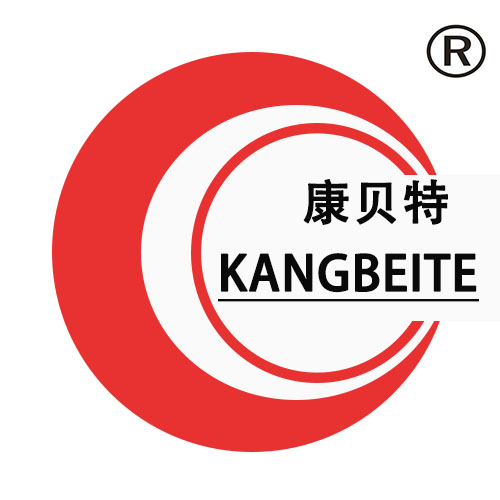U poslednjih godina, sektor zamrznutih hrana je značajno napredovao kao rezultat promjena u tehnologiji. Jedan od najvažnijih prolaza bila je uvođenja tehnologije Individualne Brze Zamrzivanja (IQF). Napredci u IQF zamrzivačima poboljšali su proizvodnju zamrznutih hrana s obzirom na kvalitet, učinkovitost i prijateljnost prema okolišu. Ovaj članak proučava kako IQF zamrzivači transformiraju proizvodnju zamrznutih hrana, fokusirajući se na promjene u industriji, potražnju kupaca i perspektive zamrznutih hranskih artikala.
Najznačajniji napredak IQF smraživača jest čuvanje teksture i okusa.
U suprotnost tradicionalnom smrznavanju, koje povećava veličinu ledušnih kristala, štetno utičući na ćelijsku strukturu hrane zbog sporehladenja, IQF tehnologija sprečava formiranje ledušnih kristala smrznovanjem pojedinačnih komada brzo. To poboljšava okus i nutrijcionu vrijednost hrane, time održavajući rastući potražnju potrošača za smrznutom hranom.
Također, upotreba IQF smraživača čini proizvodnju efikasnijom.
Brzo se smrzavanje omogućuje proizvođačima da smrznu velike količine hrane u kratkom vremenu, što smanjuje vrijeme obrade i poboljšava produktivnost. Ova produktivnost je vrlo važna za firme koje natjecaju na tržištu gdje su brzina i kvaliteta ključni faktori. Tvrtke mogu optimizirati svoje procese, smanjiti otpad, smanjiti troškove i postati konkurentnije na globalnom tržištu. Sve ovo je moguće uz uvođenje IQF tehnologije.
Održivost je još jedan istaknut atribut metode zamišljanja IQF.
Postoji rastuća briga o okolišu, što znači da proizvođači hrane moraju usvojiti ekološki prijateljske metode. U poređenju sa tradicionalnim zamišaljacima, zamišaljaci IQF koriste manje energije. To direktno rezultira manjim ugljikovim otiskom. Pored toga, mogućnost zamišljanja hrane u trenutku najveće svježine pomaže u smanjenju otpada, što dalje podržava borbu protiv otpada hrane. Iz ekološkog pogleda, procesi sa manje otpada pomažu promicanju održivosti u prehranoj industriji. Tvrtke poboljšavaju svoj sposoban image brenda podržavanjem ovih truda.
Prilagodljivost tehnologije IQF je jedna karakteristika kojoj bi trebalo posvetiti pažnju.
Ova tehnologija može se koristiti na različitim vrstama hrane, poput voća, povrća, ribe i čak i pripremljenih jela. Ova fleksibilnost omogućava proizvođačima da šire svoje linije proizvoda i dostižu različite tržišne regije. Proces IQF pomaga tvrtkama da prate promjene u okusima i preferencijama potrošača, koje se mijenjaju brže nego ikada prije. Tvrtke koje ulagaju u hladnjake za IQF mogu poboljšati svoju reputaciju kao inovatori u industriji zamrznutih hrana.
Korištenje IQF tehnologije u zamrznutoj hrani očekuje se da će rasti u sljedećim godinama.
Sa neizmernim porastom zahtjeva za zamišljanim hransom zbog jednostavnog pripremanja i opcija zdravih jela, IQF hladnjaci su određeni da naprave ogroman razliku. Postoji i rastući trend interesa za zamišljenim biljnim proizvodima te pakiranim jelovima koji mogu koristiti IQF tehnologiju. Također, očekuju se daljnji razvoji u oblasti zamrzavanja placebo-a koji će poboljšati sistem IQF hladnjaka, čime će se proizvodi hrane postati kvalitetniji i procesi učinkovitiji.
Da bi sve zaključili, dolazak IQF freezer-a transformisao je proizvodnju zamrznutih hrana u boljem smislu povećanjem kvaliteta hrane, povećanjem operativne efikasnosti, poticanjem okolišne odgovornosti i pružanjem fleksibilnosti. U današnjem brzo promenljivom tržištu, oni koji se prilagode i ulože u IQF tehnologiju ispunjavat će stalno se menjaće zahteve svojih potrošača. Kretanje prema održivim i visokokvalitetnim zamrznutim hrana nije samo prolazni trend; to je osnovna promena u mišljenju načina proizvodnje i potrošnje hrane.
Sadržaj
- Najznačajniji napredak IQF smraživača jest čuvanje teksture i okusa.
- Također, upotreba IQF smraživača čini proizvodnju efikasnijom.
- Održivost je još jedan istaknut atribut metode zamišljanja IQF.
- Prilagodljivost tehnologije IQF je jedna karakteristika kojoj bi trebalo posvetiti pažnju.
- Korištenje IQF tehnologije u zamrznutoj hrani očekuje se da će rasti u sljedećim godinama.

